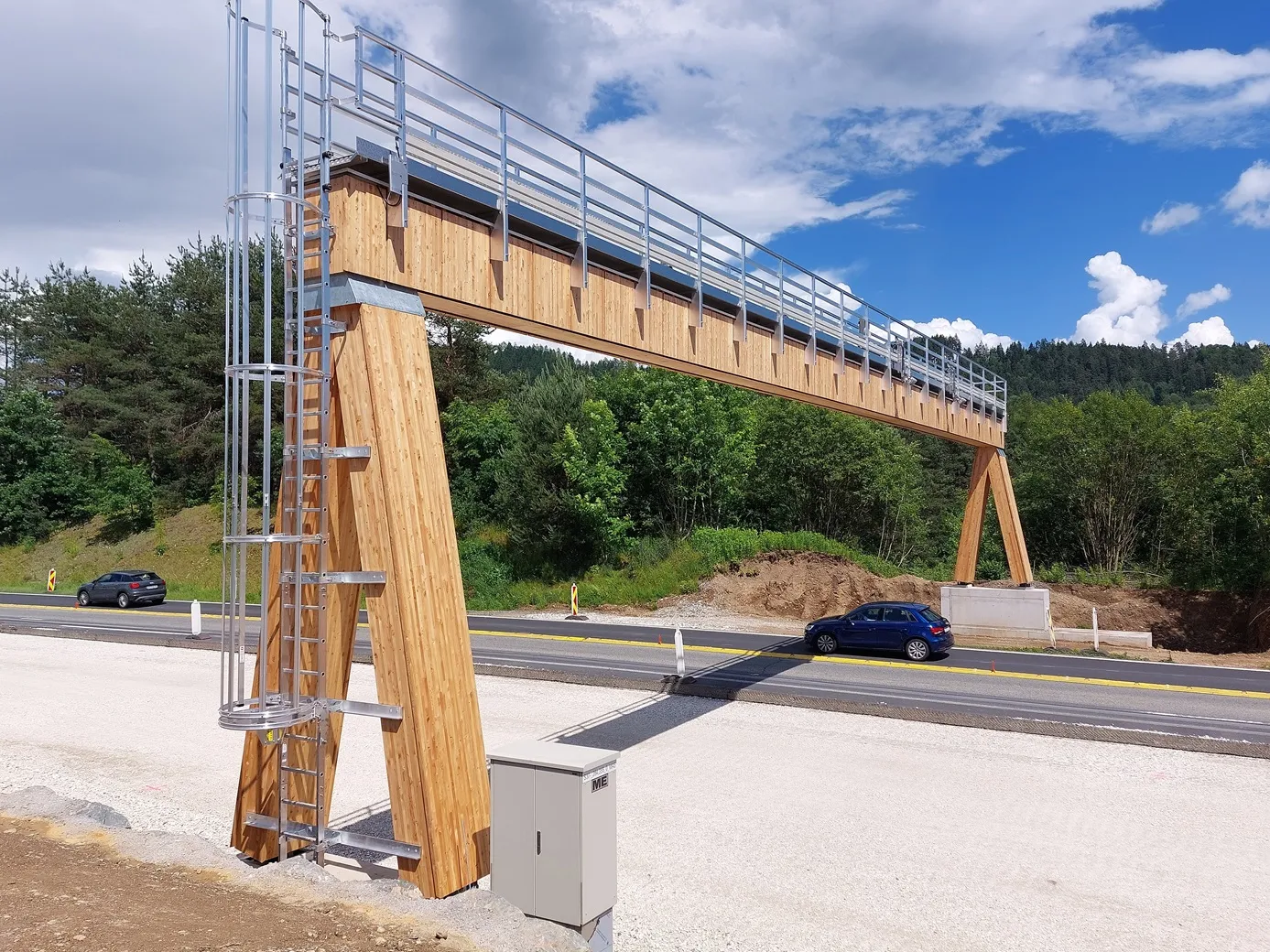
Austrian roadway operator Asfinag has installed a Kapsch TrafficCom Green Gantry.
The largely prefabricated toll gantry is made from renewable timber rather than steel or aluminium, "which are associated with significant emissions due to their manufacturing and recycling processes", Kapsch says.
The company suggests that the Green Gantry on a highway in Carinthia, Austria, saves 15 tonnes of CO2, while comparable steel gantries create up to 30 tonnes of CO2 during production.
“Our Green Gantry not only has a positive CO2 balance, it has the same load-bearing capacity and an even better environmental impact as a traditional gantry," says Michael Weber, head of sales EMENA at Kapsch TrafficCom.
"In addition, it meets all relevant European norms and standards for gantries, so it is equally safe to deploy and to maintain, and after its lifetime of at least 20 years, it can be dismantled and re-used without causing additional pollution.”
"For us, sustainable construction is not just an empty slogan; we want to set new standards in this area," say Asfinag board members Hartwig Hufnagl and Herbert Kasser in a statement. "Innovations are the driving force behind this. Wood as a building material can also play an important role on the motorway in the future."
The gantry's load-bearing core is made of glued and laminated spruce timber, with weather-resistant larch wood used for the outer layer.
Installation of the gantry took "only about one day" and was managed by Asfinag and traffic technology specialist Forster.
Electricity for operating the gantry equipment comes from its own photovoltaic system, with battery storage also installed to ensure it works at night and in bad weather.









